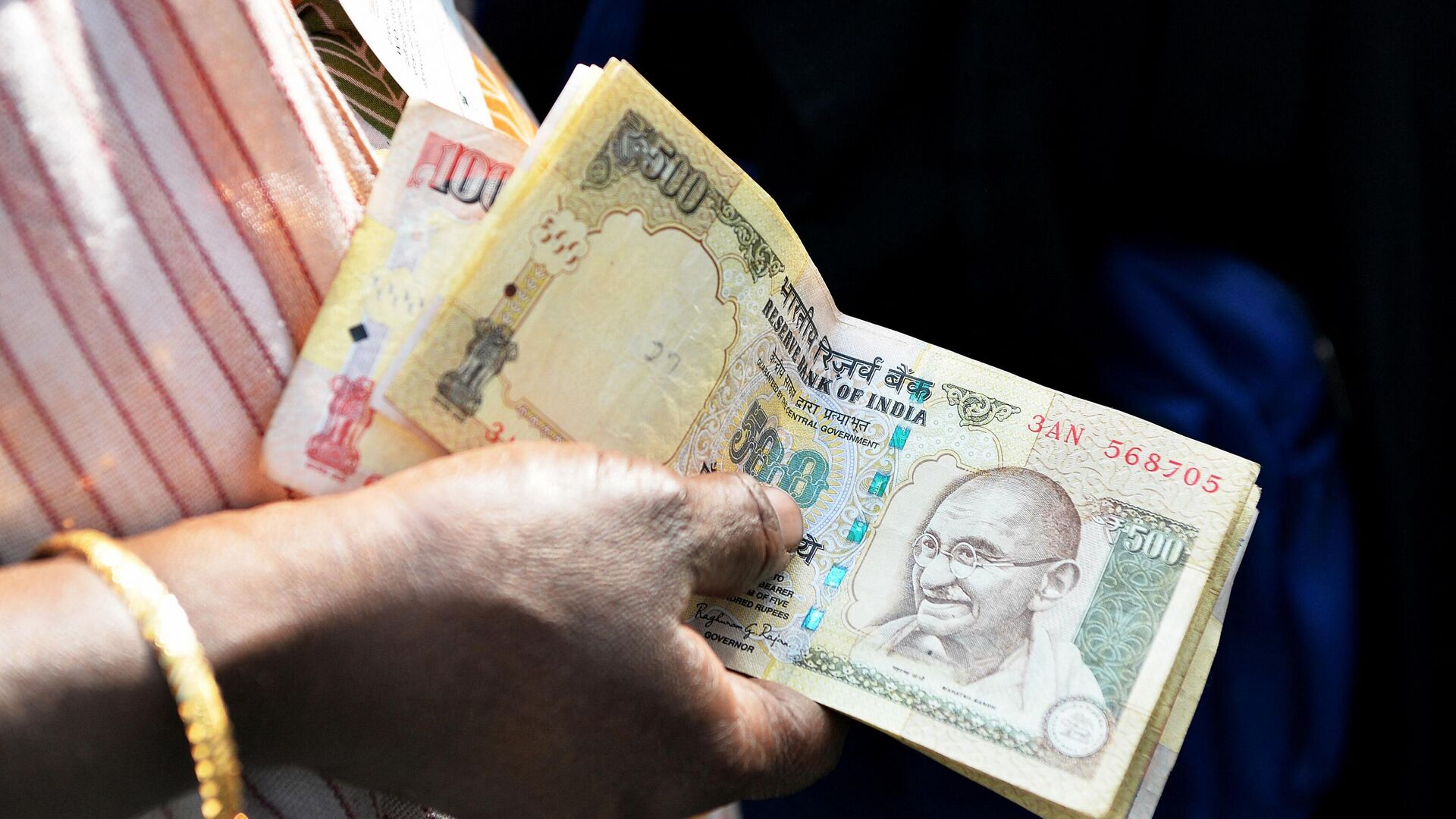https://sputniknews.in/20230102/supreme-court-upholds-modi-govts-2016-demonetization-decision-351089.html
Supreme Court Upholds Modi Govt's 2016 Demonetization Decision
Supreme Court Upholds Modi Govt's 2016 Demonetization Decision
Sputnik India
On November 8, 2016, Prime Minister Narendra Modi announced that older INR 500 and INR 1,000 currency notes, would no longer be legal tender.
2023-01-02T14:22+0530
2023-01-02T14:22+0530
2023-01-02T14:22+0530
india
delhi
https://cdn1.img.sputniknews.in/img/07e7/01/02/353602_0:161:3066:1886_1920x0_80_0_0_e8d265dde5ec16ada0ea6c4cbb76ed73.jpg
The Supreme Court of India issued a ruling on Monday to uphold Narendra Modi government's 2016 decision to demonetize INR 500 and 1,000 banknotes. In its verdict, the court said that there was no flaw in the decision and it satisfies the proportionality test.The ruling was announced by a five-judge constitution bench headed by Justice S. A. Nazeer. Besides Justice Nazeer, who is set to retire on January 4, the bench included Justices B.R. Gavai, B.V. Nagarathna, A.S. Bopanna and V. Ramasubramanian.The majority part of the decision was read out by Justice Gavai on behalf of himself, along with justices Nazeer, Bopanna and Ramasubramanian.He said that the federal government had the power to demonetize all series of a bank note and the decision of November 8, 2016 can’t be said to be unreasonable nor was it hit by the doctrine of proportionality.The top court further added that it is not relevant whether the objective behind the decision was achieved or not.It also said that adequate consultation took place between the central government and the Reserve Bank of India before the decision.However, Justice B.V. Nagarathna differed from the majority view as she said that though demonetization was well-intentioned, and well thought out, as it targeted the black market, the funding of terrorism and counterfeiting, it should be declared unlawful on legal grounds and not based on objectives."The demonetization of all INR 500 and 1000 currency notes is unlawful and vitiated. However, having regard to the fact that the notification has been acted upon, this declaration of law will act only prospectively and will not affect actions already taken. Hence, no relief is being given in the petitions," Nagarathna added.According to media reports, the bench had reserved its verdict on December 7 after hearing elaborate arguments from the government and the petitioners.A total of 58 petitions were filed challenging the decision to ban the currency notes. They had argued that the note ban decision was arbitrary, unconstitutional and contrary to the powers and procedure prescribed under the Reserve Bank of India Act.The government justified the decision, saying that it was taken to crack down on fake currency, black markets and terror financing.The petitioners also argued that the government's objectives had nothing to do with the note ban as the exercise was undertaken by countries facing hyperinflation or the need to do away with unusable banknotes.
india
delhi
Sputnik India
feedback.hindi@sputniknews.com
+74956456601
MIA „Rossiya Segodnya“
2023
Rahul Trivedi
https://cdn1.img.sputniknews.in/img/07e6/0c/13/136500_0:0:628:627_100x100_80_0_0_72097ff894c7446b70d2efafcb719720.jpg
Rahul Trivedi
https://cdn1.img.sputniknews.in/img/07e6/0c/13/136500_0:0:628:627_100x100_80_0_0_72097ff894c7446b70d2efafcb719720.jpg
News
en_IN
Sputnik India
feedback.hindi@sputniknews.com
+74956456601
MIA „Rossiya Segodnya“
Sputnik India
feedback.hindi@sputniknews.com
+74956456601
MIA „Rossiya Segodnya“
Rahul Trivedi
https://cdn1.img.sputniknews.in/img/07e6/0c/13/136500_0:0:628:627_100x100_80_0_0_72097ff894c7446b70d2efafcb719720.jpg
supreme court of india, demonetisation, black money, terror funding, fake currency
supreme court of india, demonetisation, black money, terror funding, fake currency
Supreme Court Upholds Modi Govt's 2016 Demonetization Decision
On November 8, 2016, Prime Minister Narendra Modi announced that older INR 500 and INR 1,000 currency notes would no longer be legal tender.
The Supreme Court of India issued a ruling on Monday to uphold Narendra Modi government's 2016 decision to demonetize INR 500 and 1,000 banknotes. In its verdict, the court said that there was no flaw in the decision and it satisfies the proportionality test.
The ruling was announced by a five-judge constitution bench headed by Justice S. A. Nazeer. Besides Justice Nazeer, who is set to retire on January 4, the bench included Justices B.R. Gavai, B.V. Nagarathna, A.S. Bopanna and V. Ramasubramanian.
The majority part of the decision was read out by Justice Gavai on behalf of himself, along with justices Nazeer, Bopanna and Ramasubramanian.
He said that the federal government had the power to demonetize all series of a bank note and the decision of November 8, 2016 can’t be said to be unreasonable nor was it hit by the doctrine of proportionality.
The top court further added that it is not relevant whether the objective behind the decision was achieved or not.
It also said that adequate consultation took place between the central government and the Reserve Bank of India before the decision.
However, Justice B.V. Nagarathna differed from the majority view as she said that though demonetization was well-intentioned, and well thought out, as it targeted the black market, the funding of terrorism and counterfeiting, it should be declared unlawful on legal grounds and not based on objectives.
"The demonetization of all INR 500 and 1000 currency notes is unlawful and vitiated. However, having regard to the fact that the notification has been acted upon, this declaration of law will act only prospectively and will not affect actions already taken. Hence, no relief is being given in the petitions," Nagarathna added.
According to media reports, the bench had reserved its verdict on December 7 after hearing elaborate arguments from the government and the petitioners.
A total of 58 petitions were filed challenging the decision to ban the currency notes. They had argued that the note ban decision was arbitrary, unconstitutional and contrary to the powers and procedure prescribed under the Reserve Bank of India Act.
The government justified the decision, saying that it was taken to crack down on fake currency, black markets and terror financing.
The petitioners also argued that the government's objectives had nothing to do with the note ban as the exercise was undertaken by countries facing hyperinflation or the need to do away with unusable banknotes.



